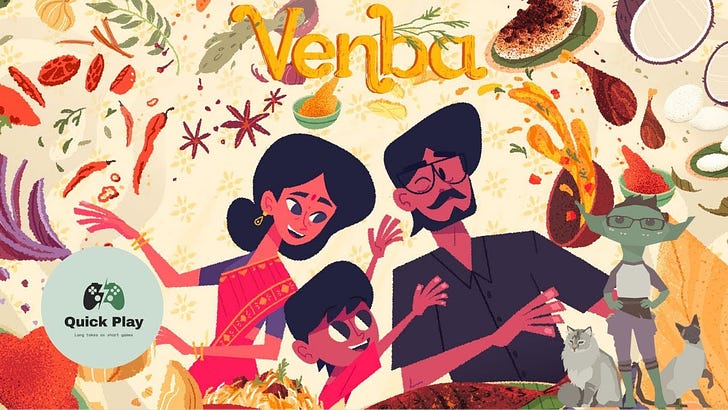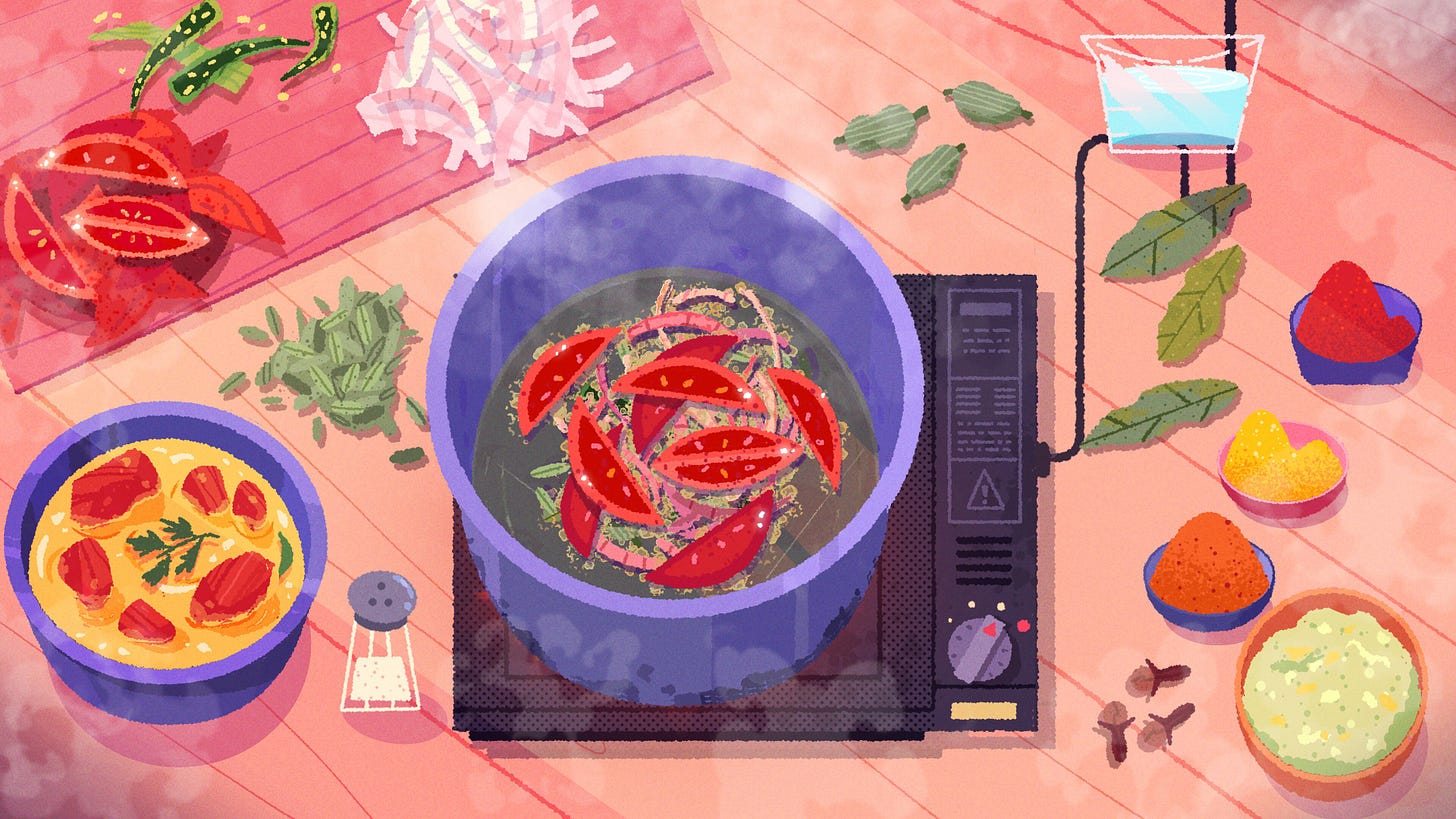First up, here’s a video I made of a full playthrough of Venba. I hope you like it.
Venba is truly a bite-sized game, taking me less than 90 minutes to complete. However, to a certain extent, it’s the catalyst for this blog. It truly made me wonder, “why is this a game rather than a movie” which is a question that really interests me now that it has occurred to me to ask it. Exploring media through writing about it is an important outlet for me.
Venba taught me beautifully and heartbreakingly the story of immigrant families, an experience I am wholly unfamiliar with myself. I’m white British and so is everyone I am related to (until you get to some French great-grandparents I think) and while I am a conscientious person who actively thinks about oppression and marginalisation, nothing has brought this issue home to me like Venba.
It does one of my favourite things in gaming, which is using the medium to double down on its themes. As an immigrant to Canada, the titular Venba and her husband Paavalan are not confident English speakers. Different languages are represented by different fonts and colours, and words are distorted and hard to read, symbolic of the difficulties faced by the native Tamil-speaking characters. Words also appear slowly or quickly depending on fluency.
Venba takes a light touch with its storytelling, trusting the players to understand what it is alluding to. When Paavalan doesn’t come home from work on time one day and Venba finds him in the park, with his glasses broken and his belongings strewn everywhere, smoking a cigarette, we are to understand it as a racist assault, but the game never outright says it. This is extremely effective, particularly for me as an outsider to this experience.
The most moving scene comes later in the game. Paavalan has passed away and his and Venba’s son Kavin is grown and living away from home. He tells his mum that he might come round for dinner and Venba sets about creating a feast. It’s by far the longest gameplay section in the game, culminating in the creation of a layered biryani, clearly a special creation for an occasion. The light turns from bright to dark over the feast and the camera pans across to Venba sitting on the small balcony, phone in hand. On-screen blinks a message from Kavin: I won’t make it after all. I cried. I’m nearly crying again now just writing about it.
The fact that you as a player have to do the puzzles and the “gameplay” elements that result in this banquet really invests you in its outcome. I think this scene would have been tragic in any medium but being a game truly elevated the sense of letdown.
Venba repeatedly tries to turn a temporary teaching job into a full-time, permanent position. She’s denied repeatedly. The final blow comes when she has decided to return to her home in India, you can tell how worn down this foreign land has made her when she declines a far-belated offer for a job. There are a lot of small details that paint a picture of a Sisyphean battle to make Canada home and failing.
The game does end on a hopeful note at least, where Kavin dips into his mum’s handed-down recipe book and gets in touch with his heritage. He finally connects with Tamil culture in a way that was impossible for him to do as a young man trying to find a place in the world.
Some people say that at 90 minutes, Venba is too short. However, I disagree with this. I think the story did as much as it needed to do. It certainly could have been longer; whether it would be a better or worse game for it I don’t know, but I didn’t feel short-changed.
Venba is beautifully animated with vibrant colour at the forefront of the aesthetic. This felt in keeping with what I know about Tamil culture. The soundtrack is rich and varied, inspired by Tamil music the developers heard growing up. It really makes you sit up and feel like you’re a part of something.
I truly can’t recommend Venba enough. It’s beautiful, clever, thought-provoking, and deeply moving in a way that only an interactive medium can be. I think one of the most powerful things a game can do is invoke empathy and Venba does it effectively and with ease. It’s currently around £13 for a short, self-contained experience, and for me, it was worth every penny.
Game: Venba
Developer: Visai Games
Publisher: Visai Games
Platforms: PC, Switch, Playstation, Xbox







You’re breaking my heart with that description of the longest gameplay section just to be disappointed. Sounds like the developers knew just how to give the player enough to destroy them but still leave them wanting more.
Lovely review of what sounds like a heart-achingly good game.